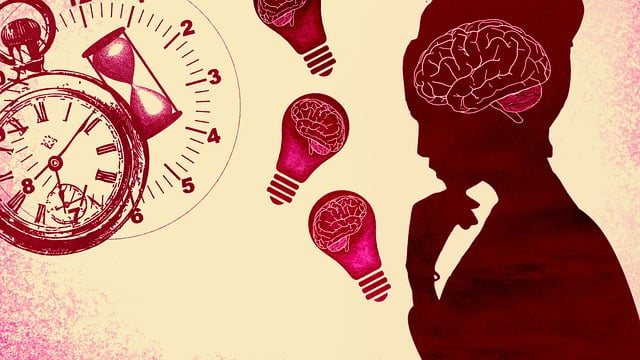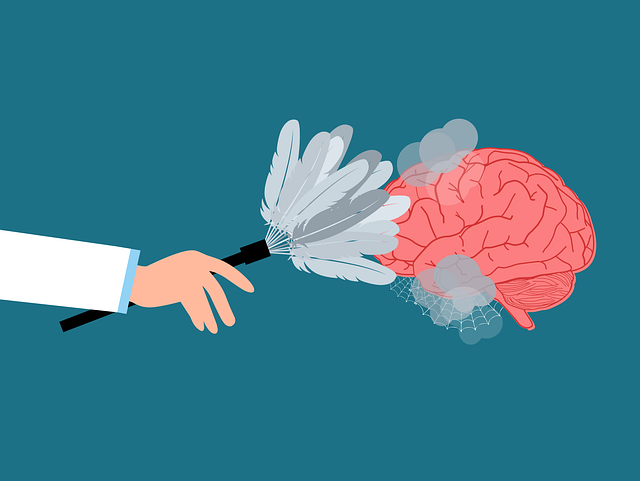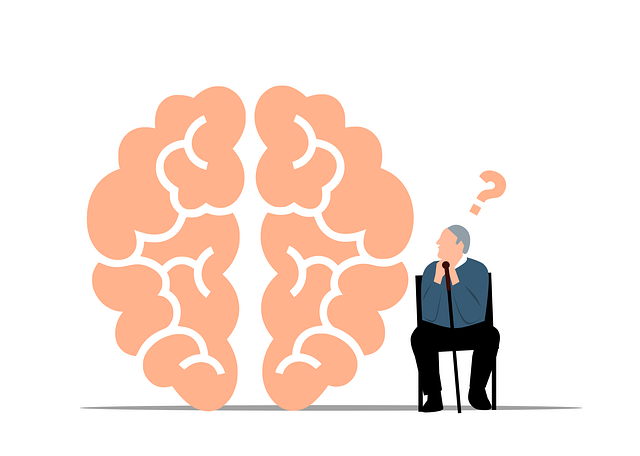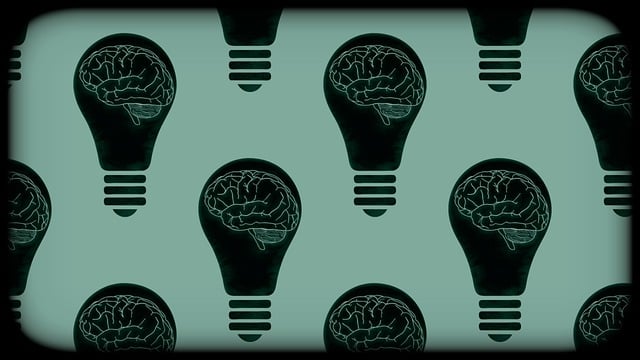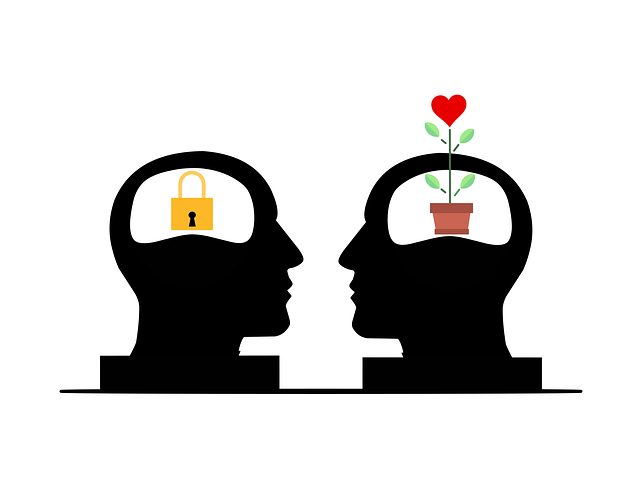Arvada Geriatrics Therapy offers a holistic approach to mental wellness for older adults, addressing unique age-related needs. By combining cognitive-behavioral therapies, mindfulness, goal-setting workshops, and creative arts, they enhance cognitive function, improve mood, and build resilience. This comprehensive strategy, including regular check-ins and supportive environments, prevents depression and promotes life satisfaction. Integrating diverse therapeutic methods with life coaching ensures tailored support for complex emotional needs, bridging the gap between healthcare and coaching while reducing stigma. Measuring success through structured assessments and client feedback allows Arvada Geriatrics Therapy to continually refine their interventions for optimal geriatric mental wellness care.
Mental wellness coaching programs for elderly adults are gaining prominence, offering a holistic approach to well-being. This article explores the development and impact of such programs, beginning with the foundational principles of Arvada Geriatrics Therapy. We delve into identifying unique needs and goals, designing engaging strategies, and integrating therapeutic techniques. By combining these elements, mental wellness coaching becomes a powerful tool, enhancing the lives of seniors. Understanding and measuring success is crucial, and this guide provides insights into evaluating the effectiveness of geriatric mental wellness coaching, inspired by Arvada’s innovative practices.
- Understanding Arvada Geriatrics Therapy: A Foundation for Mental Wellness Coaching
- Identifying Needs and Goals: Personalizing Coaching Programs for Elderly Adults
- Designing Effective Coaching Strategies: Engaging Activities and Techniques
- Integrating Therapeutic Approaches: Combining Coaching with Traditional Therapies
- Measuring Success and Impact: Evaluating the Effectiveness of Geriatric Mental Wellness Coaching
Understanding Arvada Geriatrics Therapy: A Foundation for Mental Wellness Coaching

Arvada Geriatrics Therapy serves as a cornerstone for fostering mental wellness through its comprehensive approach to older adult care. This therapeutic model recognizes that promoting emotional well-being is integral to overall health, especially among geriatric populations. By focusing on Arvada Geriatrics Therapy, mental wellness coaching programs can develop strategies that cater to the unique needs and challenges faced by seniors.
The foundation lies in understanding that building inner strength and fostering resilience are key components of self-care practices. Through evidence-based techniques and tailored interventions, this therapy aims to enhance cognitive function, improve mood, and boost overall mental resilience. By integrating these principles into coaching programs, practitioners can guide individuals towards sustainable mental wellness, ensuring they navigate life’s transitions with grace and equilibrium.
Identifying Needs and Goals: Personalizing Coaching Programs for Elderly Adults

Identifying the specific needs and goals of elderly adults is a critical step in developing effective mental wellness coaching programs tailored to their unique challenges. As Arvada Geriatrics Therapy highlights, aging brings about various physical and cognitive changes that can impact mental health. Coaching should address these individual differences by focusing on enhancing coping strategies, fostering social connections, and managing age-related stressors. For instance, personalized goals might include improving communication skills using conflict resolution techniques to navigate intergenerational differences or preventing burnout through stress management practices tailored to their daily routines.
This personalized approach ensures that mental wellness coaching programs are not one-size-fits-all but rather adaptable to the diverse needs of the elderly population. By recognizing and catering to these specific requirements, coaches can significantly improve the overall well-being of their clients, ensuring a more fulfilling and meaningful life as they age.
Designing Effective Coaching Strategies: Engaging Activities and Techniques

In designing effective coaching strategies for mental wellness programs, engaging activities and techniques are paramount. Incorporating a mix of cognitive-behavioral therapies, mindfulness exercises, and goal-setting workshops can significantly enhance the overall effectiveness of coaching sessions. These interactive methods not only promote emotional well-being promotion techniques but also foster a sense of self-awareness and resilience among participants, as seen in successful Arvada Geriatrics Therapy initiatives.
Moreover, integrating creative approaches such as art therapy, music, and storytelling can make coaching more accessible and appealing, particularly for diverse populations. Public awareness campaigns development centered around mental health should leverage these techniques to counter stigma and encourage early intervention. Additionally, depression prevention strategies can be effectively incorporated into coaching programs through regular check-ins, supportive environments, and the teaching of coping mechanisms, ensuring a holistic approach to participant well-being.
Integrating Therapeutic Approaches: Combining Coaching with Traditional Therapies

Incorporating diverse therapeutic approaches is a key aspect of developing effective mental wellness coaching programs. Traditionally, coaching has been viewed as a support system for personal growth and goal achievement, but integrating evidence-based practices from psychology can significantly enhance its impact. For instance, combining life coaching with traditional therapies like those offered by Arvada Geriatrics Therapy allows for a more holistic treatment plan. This fusion addresses not only the client’s present challenges but also their underlying mental health issues. Such an approach is especially beneficial in managing conditions that require long-term care and support, ensuring clients receive comprehensive care tailored to their unique needs.
By integrating therapeutic techniques, coaches can facilitate conversations that delve into complex emotional issues while also teaching practical coping strategies. This dual focus empowers individuals to navigate their mental health journeys with increased resilience. Moreover, it helps bridge the gap between conventional healthcare and coaching by leveraging evidence-based practices, such as building empathy through active listening and cultural competency training (including Healthcare Provider Cultural Competency Training), which are crucial in reducing the stigma associated with mental illness (Mental Illness Stigma Reduction Efforts).
Measuring Success and Impact: Evaluating the Effectiveness of Geriatric Mental Wellness Coaching

Measuring success and impact is a critical aspect of evaluating the effectiveness of geriatric mental wellness coaching programs, such as those offered by Arvada Geriatrics Therapy. To assess progress, coaches should implement structured assessments both before and after the coaching period. These evaluations can include standardized questionnaires, interviews, or self-reported measures that gauge improvements in mental health symptoms, overall well-being, and quality of life. By comparing these data points, coaches can identify specific areas where clients have flourished and those that may still require support.
Moreover, qualitative feedback from clients through open-ended questions or focus groups can provide valuable insights into the perceived benefits of coaching. This feedback should encompass not only improvements in symptoms but also enhanced self-care practices, increased self-awareness exercises, and improved social skills training. Integrating these diverse data sources enables a holistic understanding of the program’s impact, ensuring that coaching interventions are tailored to meet the unique needs of geriatric clients.
Arvada Geriatrics Therapy offers a comprehensive framework for developing mental wellness coaching programs tailored to elderly adults. By understanding individual needs and goals, coaches can design engaging strategies that combine innovative techniques with traditional therapies. Effective measurement of success ensures the program’s impact is evaluated, allowing for continuous improvement and enhanced mental well-being among older adults. Integrating these elements creates a powerful approach, ensuring personalized support for optimal geriatric mental health.
